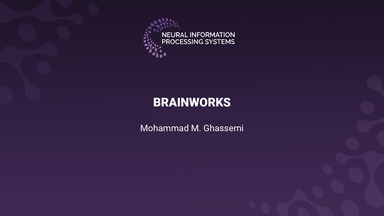Analyzing Micro-Level Rebound Effects of Energy Efficient Technologies
Dec 2, 2022
Speakers
Mayank Jain
Speaker · 0 followers
Mukta Jain
Speaker · 0 followers
Tarek Alskaif
Speaker · 0 followers
Soumyabrata Dev
Speaker · 0 followers
About
Energy preservation is central to prevent resource depletion, climate change and environment degradation. Investment in raising efficiency of appliances is among the most significant attempts to save energy. Ironically, introduction of many such energy saving appliances increased the total energy consumption instead of reducing it. This effect in literature is attributed to the inherent Jevons paradox (JP) and optimism bias (OB) in consumer behavior. However, the magnitude of these instincts vary among different people. Identification of this magnitude for each household can enable the development of appropriate policies that induce desired energy saving behaviour. Using the RECS 2015 dataset, the paper uses machine learning for each electrical appliance to determine the dependence of their total energy consumption on their energy star rating. This shows that only substitutable appliances register increase in energy demand upon boosted efficiency. Lastly, an index is noted to indicate the varying influence of JP and OB on different households.Energy preservation is central to prevent resource depletion, climate change and environment degradation. Investment in raising efficiency of appliances is among the most significant attempts to save energy. Ironically, introduction of many such energy saving appliances increased the total energy consumption instead of reducing it. This effect in literature is attributed to the inherent Jevons paradox (JP) and optimism bias (OB) in consumer behavior. However, the magnitude of these instincts var…
Organizer
NeurIPS 2022
Account · 961 followers
Like the format? Trust SlidesLive to capture your next event!
Professional recording and live streaming, delivered globally.
Sharing
Recommended Videos
Presentations on similar topic, category or speaker
Characterizing Data Points via Second-Split Forgetting
Watch later
Total of 0 viewers voted for saving the presentation to eternal vault which is 0.0%
FNeVR: Neural Volume Rendering for Face Animation
Watch later
Bohan Zeng, …
Total of 0 viewers voted for saving the presentation to eternal vault which is 0.0%
Brainworks
Watch later
Total of 0 viewers voted for saving the presentation to eternal vault which is 0.0%
Learning Active Camera for Multi-Object Navigation
Watch later
Peihao Chen, …
Total of 0 viewers voted for saving the presentation to eternal vault which is 0.0%
Versatile Multi-stage Graph Neural Network for Circuit Representation
Watch later
Shuwen Yang, …
Total of 0 viewers voted for saving the presentation to eternal vault which is 0.0%
Staggered Rollout Designs Enable Casual Interference Without Network Knowledge
Watch later
Total of 0 viewers voted for saving the presentation to eternal vault which is 0.0%





